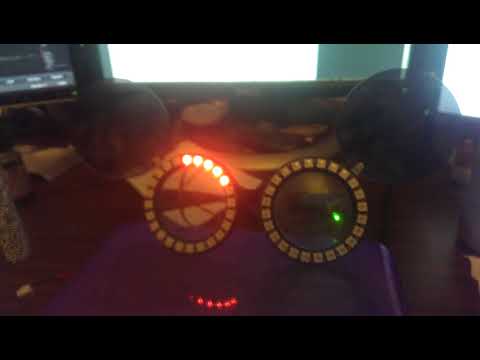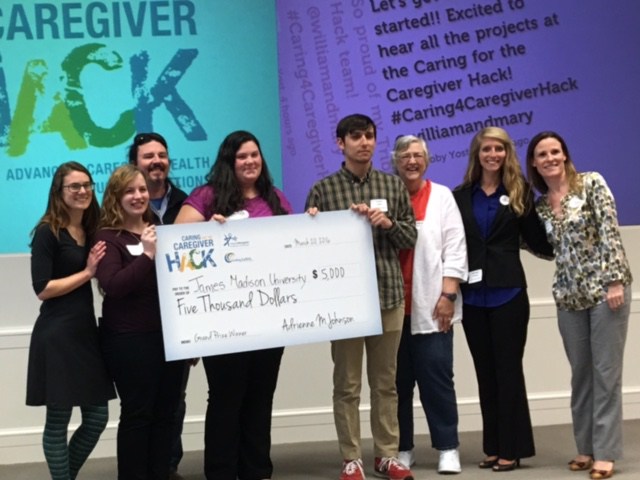Hacking Sessions, Hack-A-Thons, and Pop-up Classes
Eric S. Raymond, open source spokesman and author of the New Hacker’s Dictionary, defines a “hacker” as:
A person who enjoys exploring the details of programmable systems and how to stretch their capabilities, as opposed to most users, who prefer to learn only the minimum necessary. RFC1392, the Internet Users’ Glossary, usefully amplifies this as: A person who delights in having an intimate understanding of the internal workings of [any] system, computers and computer networks in particular.
My primary goal is to create an environment for students that will spark their curiosity, and make them feel empowered to dive deeper into the technological content.
Hacking Sessions
From fall 2008 through the end of spring 2013, nearly every Monday night of the semester from 8pm-midnight, I held an open lab session in the IKM Lab (ISAT/CS 337) that I called the weekly "hacking session." In fall 2009, during the 3rd semester, Dr. Radziwill also began coming and inviting her own students to the sessions. On a typical week we might have as few as five or as many as fifty students attend. The atmosphere was intentionally casual, and there was seldom an agenda. Computers got opened and repaired. Pizza was eaten. Sometimes, there was debugging. While the weekly hacking sessions have been on hiatus for the last several years, I have found an outlet for tinkering via Pop-Up classes in the JMU XLabs.
Pop-Up Classes at the JMU XLabs
The JMU XLabs house a "maker space" with 3D printers, laser cutters, virtual reality/augmented reality (VR/AR) equipment, soldering equipment, routers, and a huge variety of other tools. It is funded by the 4VA program along with some other grants and is open to anyone and everyone in the JMU community. I have been involved in a number of projects at the XLabs since they opened.
My most popular event is a pop-up class on LED programming. I first offered this in the fall of 2015, and have offered it pretty much every semester since then. It is a by-registration-only event, and it is usually "sold out." In this class I show students how to do basic electronics soldering, and then teach them how to program an LED light show. This gives them the basic skills they need to make wearable LED projects, like this pair of glasses that I built and use to showcase what is possible.

Hack-A-Thons
A "hack-a-thon" is an event that usually lasts anywhere from 12 to 72 hours in which teams of people are invited to try to solve problems with technology. Sometimes there is a theme associated with the hack-a-thon, and sometimes they are more open-ended. Frequently the goal is less about what is produced, and more about giving the participants an opportunity to get exposed to new technology and to learn and fall in love with something new. I've participated in several of these events.
Caring for the Caregiver Hack-A-Thon, March 2016
 In March 2016, I led a team of JMU students to the Lindsay Institute for Innovations in Caregiving "Caring for the Caregiver" Hack-A-Thon. Two occupational therapy (OT) students, two social work students, one engineering student and myself collaborated over 48 hours to produce a mobile app called My Time for Caregivers. We won the first place prize of $5,000, and in a subsequent round won $10,000 further to use as seed money to get the app up and running. The team's efforts are still ongoing.
In March 2016, I led a team of JMU students to the Lindsay Institute for Innovations in Caregiving "Caring for the Caregiver" Hack-A-Thon. Two occupational therapy (OT) students, two social work students, one engineering student and myself collaborated over 48 hours to produce a mobile app called My Time for Caregivers. We won the first place prize of $5,000, and in a subsequent round won $10,000 further to use as seed money to get the app up and running. The team's efforts are still ongoing.
Bluestone Hacks!
The annual hack-a-thon event at the XLabs is called Bluestone Hacks. I participated as a judge at the April 2nd 2016 event.

